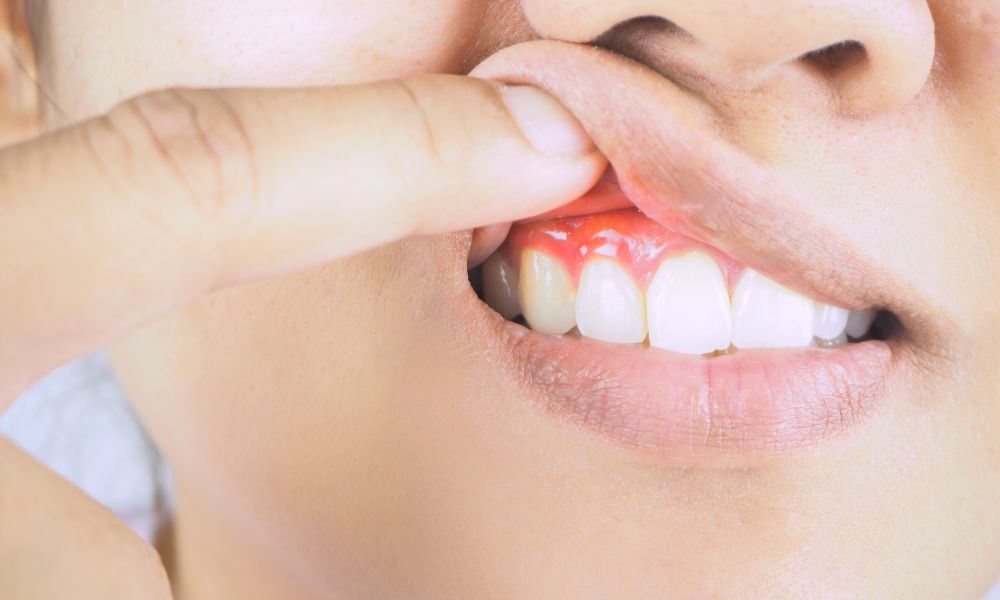3 Signs of Periodontal Disease Everyone Should Know

Often overlooked until it’s too late, periodontal disease can lead to severe dental complications, including tooth loss. Learn more about the three most common signs of periodontal disease that everyone should know so you can take steps to avoid this painful and unpleasant disease.
Gum Complications
Gum complications often serve as the first warning signs of periodontal disease. For example, gums that frequently bleed during brushing or flossing are most likely impacted by periodontal disease. Inflammation usually accompanies this bleeding, causing your gums to turn red, swell, and become tender. Eventually, inflamed gums recede and expose more of your tooth, increasing sensitivity. And in some cases, gums may darken due to chronic inflammation or infection. Ignoring these symptoms can lead to severe complications like the formation of pockets between teeth and gums, bone loss, and, ultimately, tooth loss. Moreover, the inflammation caused by periodontal disease isn’t confined to your mouth. It can infiltrate your bloodstream and circulate throughout your body, heightening your risk for other health issues like heart disease and high blood pressure.
Tooth Misalignment & Damage
Tooth misalignment and damage are not so much a symptom of periodontal disease, but rather an underlying cause of the complications. Misaligned teeth typically stem from poor dental habits during childhood, facial injuries, or genetic predispositions; notably, untreated and severe misalignment makes normal dental care quite difficult, especially for younger children. Over time, the risks of gum disease and enamel wear increase significantly, with some cases even leading to bone and gum tissue erosion. Additionally, individuals with advanced periodontal disease are more likely to experience tooth damage and trauma than a patient with a healthy mouth.
Consistent Oral Pain
Persistent oral pain often signals periodontal disease or other severe oral health problems. Dental decay, a cracked tooth, or an infection might cause this pain, which ranges from a dull, constant ache to a sharp, throbbing sensation. If discomfort continues or follows a discernible pattern, such as regular morning soreness, it necessitates a prompt dental consultation. Oral pain might also point to serious conditions like gum disease, dental infections, mouth sores, or abnormal growths associated with oral cancer. Therefore, any lasting oral discomfort requires immediate professional attention for diagnosis and treatment.
Ultimately, the key to maintaining good oral health is regular check-ups, proper oral hygiene, and swift attention to any concerns. If you notice any of these signs of periodontal disease that everyone should know, reach out to our friendly Gentle Dental team to learn more about effective periodontic services and solutions.